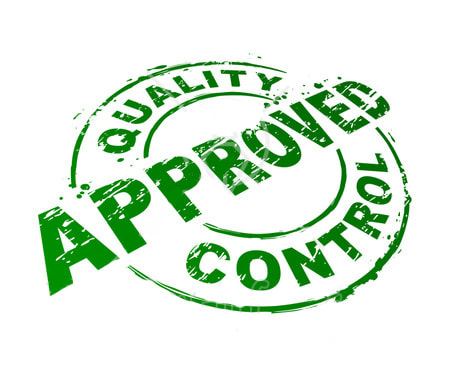5 Ways to improve your chances of getting a Wikipedia page approvedIt’s a well-known fact that receiving article approval on Wikipedia is notoriously difficult, particularly when that article is related to a company or a brand. The site has a stringent and extensive set of guidelines and rules for both editing and publishing articles, and navigating these can get very confusing. While it’s difficult to create a fool-proof method to fully ensure approval, there are a few things you can do to improve your chances of getting your page approved. 1. Start small If you’re creating a Wiki page for your business or brand from scratch, it’s usually easier to receive approval if you start out with a very short piece. This is what’s known on the platform as a ‘stub’. Especially if you’re creating a page for marketing purposes and your company may not technically be notable enough to warrant a full Wikipedia page, starting with a stub is a good idea. Don’t worry – you can expand the article later on. Editing a page is a much more straightforward process than publishing a new one. 2. Stick to the facts Although a Wiki page is immensely helpful for a brand’s online presence, Wikipedia itself is not a promotional platform. Wikipedia is concerned only with factual information that can be backed up with a reliable source. Lack of understanding of this one, simple fact is the most common reason why Wikipedia pages, particularly corporate ones, get rejected. To improve your chances of Wiki approval, you must ensure that your article includes only verifiable facts, rather than vague statements or speculation. ‘Verifiable’ in this case means that the information can easily be fact-checked using publicly available sources. 3. Use appropriate language Wikipedia does not allow promotional or vague language of any kind. This rule is particularly tricky to implement when writing a page, especially one about a brand. What is promotional or vague language? The latter is easier to keep in mind: words such as ‘might’ or ‘may’, ‘could’, ‘probably’, and ‘maybe’ are the most obvious examples. Once again, Wikipedia pages should include only facts – so there shouldn’t be space for speculation in any case. Promotional language is less easily defined, but generally refers to statements and words indicating bias in favour of the brand or product. For instance, claiming that your product ‘is much more effective than similar products offered by the competition’ (without plenty of high-authority sources positioning this statement as an objective fact) would likely ensure the page gets rejected. Even subtler promotion can raise red flags, for example the statement ‘the company offers innovative and revolutionary solutions’ can result in rejection. 4. Provide suitable references for each piece of information For each fact contained within your page, there should be at least one suitable source serving as confirmation. Although it might be tempting, you mustn’t include information that only you – as the brand owner or representative – can access; at the very least not in the initial draft. For the purposes of creating the page, imagine you’re a third-party unfamiliar with your brand and with no access to non-public information. Furthermore, not every source will be suitable. Just because an article is available online and confirms a statement in your page, it’s not automatically made appropriate for Wikipedia. To improve your chances of getting your page approved, use only news and featured articles from publications and authors unaffiliated with your brand. This means that materials such as press releases should be avoided. Information from books and scientific papers is suitable to use, though you must remember about proper formatting of the reference to get approval. If you don’t have enough suitable sources for your Wikipedia page, a professional PR company will be able to help you increase your online presence and gain more exposure in independent media outlets. 5. Enlist the help of an experienced editor If you can’t seem to get your page approved despite your best efforts, or simply find that the process is too time consuming to complete on your own, there is always the option of securing the help of experts. Experienced PR companies work with Wikipedia editors and professional content creators, whose combined expertise will ensure swift and hassle-free approval for your page. Read Now  It’s a well-known fact that receiving article approval on Wikipedia is notoriously difficult, particularly when that article is related to a company or a brand. The site has a stringent and extensive set of guidelines and rules for both editing and publishing articles, and navigating these can get very confusing. While it’s difficult to create a fool-proof method to fully ensure approval, there are a few things you can do to improve your chances of getting your page approved. 1. Start small If you’re creating a Wiki page for your business or brand from scratch, it’s usually easier to receive approval if you start out with a very short piece. This is what’s known on the platform as a ‘stub’. Especially if you’re creating a page for marketing purposes and your company may not technically be notable enough to warrant a full Wikipedia page, starting with a stub is a good idea. Don’t worry – you can expand the article later on. Editing a page is a much more straightforward process than publishing a new one. 2. Stick to the facts Although a Wiki page is immensely helpful for a brand’s online presence, Wikipedia itself is not a promotional platform. Wikipedia is concerned only with factual information that can be backed up with a reliable source. Lack of understanding of this one, simple fact is the most common reason why Wikipedia pages, particularly corporate ones, get rejected. To improve your chances of Wiki approval, you must ensure that your article includes only verifiable facts, rather than vague statements or speculation. ‘Verifiable’ in this case means that the information can easily be fact-checked using publicly available sources. 3. Use appropriate language Wikipedia does not allow promotional or vague language of any kind. This rule is particularly tricky to implement when writing a page, especially one about a brand. What is promotional or vague language? The latter is easier to keep in mind: words such as ‘might’ or ‘may’, ‘could’, ‘probably’, and ‘maybe’ are the most obvious examples. Once again, Wikipedia pages should include only facts – so there shouldn’t be space for speculation in any case. Promotional language is less easily defined, but generally refers to statements and words indicating bias in favour of the brand or product. For instance, claiming that your product ‘is much more effective than similar products offered by the competition’ (without plenty of high-authority sources positioning this statement as an objective fact) would likely ensure the page gets rejected. Even subtler promotion can raise red flags, for example the statement ‘the company offers innovative and revolutionary solutions’ can result in rejection. 4. Provide suitable references for each piece of information For each fact contained within your page, there should be at least one suitable source serving as confirmation. Although it might be tempting, you mustn’t include information that only you – as the brand owner or representative – can access; at the very least not in the initial draft. For the purposes of creating the page, imagine you’re a third-party unfamiliar with your brand and with no access to non-public information. Furthermore, not every source will be suitable. Just because an article is available online and confirms a statement in your page, it’s not automatically made appropriate for Wikipedia. To improve your chances of getting your page approved, use only news and featured articles from publications and authors unaffiliated with your brand. This means that materials such as press releases should be avoided. Information from books and scientific papers is suitable to use, though you must remember about proper formatting of the reference to get approval. If you don’t have enough suitable sources for your Wikipedia page, a professional PR company will be able to help you increase your online presence and gain more exposure in independent media outlets. 5. Enlist the help of an experienced editor If you can’t seem to get your page approved despite your best efforts, or simply find that the process is too time consuming to complete on your own, there is always the option of securing the help of experts. Experienced PR companies work with Wikipedia editors and professional content creators, whose combined expertise will ensure swift and hassle-free approval for your page. Comments are closed.
|
- Home
- Team
- Tik Tok
- Instagram & FB Verification
- Verified Instagram Accounts
- Instagram Usernames & Brokerage
- Verified Instagram Username Change
- Celebrity Instagram Growth Giveaways
- Verified Instagram Accounts With Desired Username
- Recover Disabled or Hacked Accounts
- Linkedin Username Claim Service
- Acquire Premium Accounts
- YouTube Verification
- Instagram Ban Service
- Twitter Verification
- Become a Forbes Contributor
- Write For Entrepreneur.com
- Verified Twitter Username Change
- Verified Facebook Page With Desired Username
- Instagram Growth
- Reputation Management
- Snapchat Verification
- Famous Birthdays
- Wikipedia Page Creation
- Google Knowledge Panel
- Spotify promotion
- Google News Approval Service
- PR for Influencers & Content Creators
- PR for Brands & Startups
- PR for Crypto, Blockchain & DeFi Companies
- PR for Musicians & Artists
- Partner Program
- Careers
- Blog Articles
- Clients
- Contact
Contact
Only Official Email Address [email protected]Always email directly via our official email to make sure you're liaising with us!
|
|



